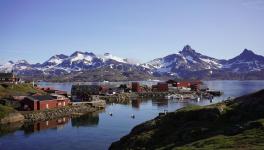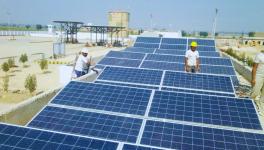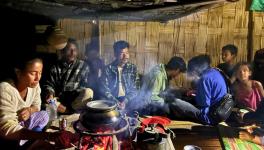Zambia: Female Farmers Adapt to Climate Change
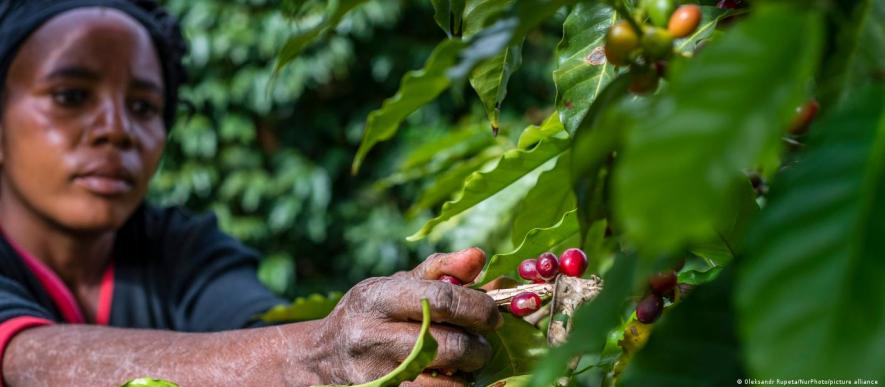
Extreme weather conditions threaten the livelihoods of millions of small-scale farmers in Zambia. Rain-fed farmlands haven't been spared as flood waters take them over. In other regions, the lack of rainfall has caused severe droughts.
Nedson Nkonde, acting executive director of Zambia's meteorological department, told DW that extreme weather patterns are causing havoc for the country's agricultural sector.
"We have had for example a lot of areas receiving over a hundred millimetres of rainfall in 24 hours," Nkonde said, stressing that such an amount of rainfall is quite huge."Those are some of the amounts some areas in the southern province receive in a month!"
The results are flooding, flash floods, damage to infrastructure, and damage to dams.
Women bear the greatest brunt of these climate change-related conditions, many of whom depend heavily on agricultural production for their livelihoods. In addition, poverty in Zambia's rural areas is high, and women's economic opportunities are severely limited.
However, some women farmers are getting supported by a United Nations Funded program to mitigate the impact of climate change.
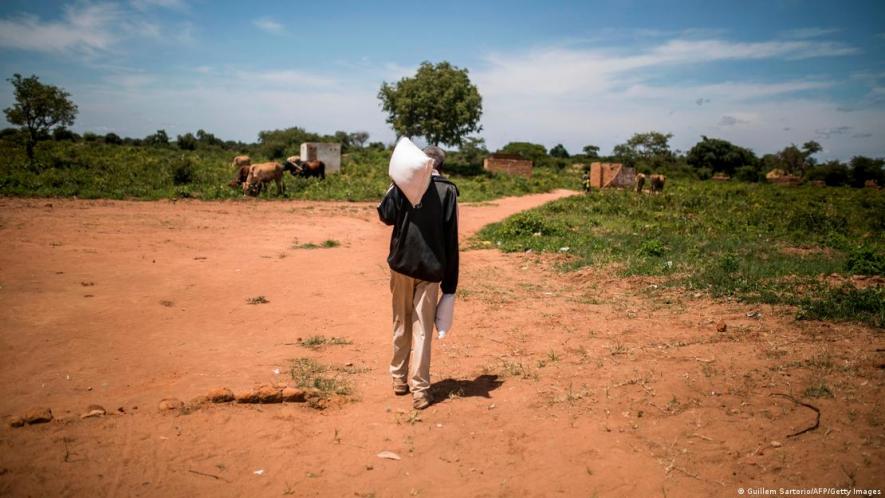
Extreme weather has left many Zambians with food insecurity
Adapting to climate change
Zambia's ministry of green economy and environment is providing real-time weather advice, using mobile phones to help female farmers adapt to climate change.
Inonge Lubasi, a farmer and one of the project's beneficiaries, told DW it hasn't been easy coping with the devastation caused by global warming.
She lost everything during floods, but with new training and support, Lubasi has moved from just growing maize to venturing into more than five different drought-resistant crops.
She also owns more than 500 herds of cattle and goats as she looks to turn things around.
"So most of the farmers here including myself, we grow crops such as sorghum, cassava, sweet potatoes and also millet," Lubasi said. She explained that these crops are climate resilient.
"We have also adapted agroforest where we plant a lot of trees including making our own organic fertiliser, we are not only depending on the artificial fertilisers but we also make our own fertiliser."
Agriculture accounts for 20% of Zambia's Gross Domestic Product (GDP) and employs over half of its population of nearly 18 million people.
Two-thirds of the labor force in Zambia is engaged in agriculture, 78% of whom are women farmers.
Authorities though want to encourage many women farmers to remain resolute amid the climate change crisis.
Supporting women farmers succeed
The United Nations-led partnership with the Green Climate Fund aims to support the transition to renewable energy. It also funds projects to help nations adapt to a warmer world by having farmers switch to drought-resistant seeds or creating more cooling green spaces in cities to deal with heat waves.
The Green Climate Fund (GCF) is one way to funnel developed countries' $100 billion (€97 million) pledged to climate-vulnerable, low-income nations. Climate change reparation is a hot topic at the ongoing COP27 UN Climate Conference in Egypt.
Nearly one million farmers in Zambia, women included, are to be supported under this project.
So far, 20,000 farmers have benefited from the program. But, according to Carol Mwape, the program's coordinator, there are still some challenges.
"We can't convince a farmer to change his farming practices if we can't offer evidence that the alternative can work," Mwape told DW.
She said the other obstacle is that it takes time for farmers to understand climate change's effects and pass on that information to other farmers.
Edited by: Chrispin Mwakideu
Get the latest reports & analysis with people's perspective on Protests, movements & deep analytical videos, discussions of the current affairs in your Telegram app. Subscribe to NewsClick's Telegram channel & get Real-Time updates on stories, as they get published on our website.









